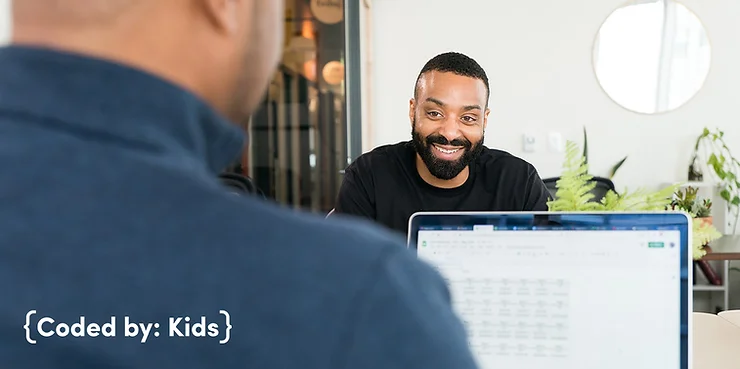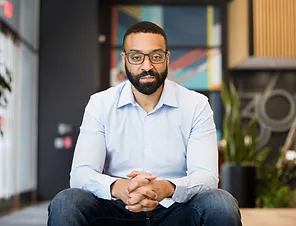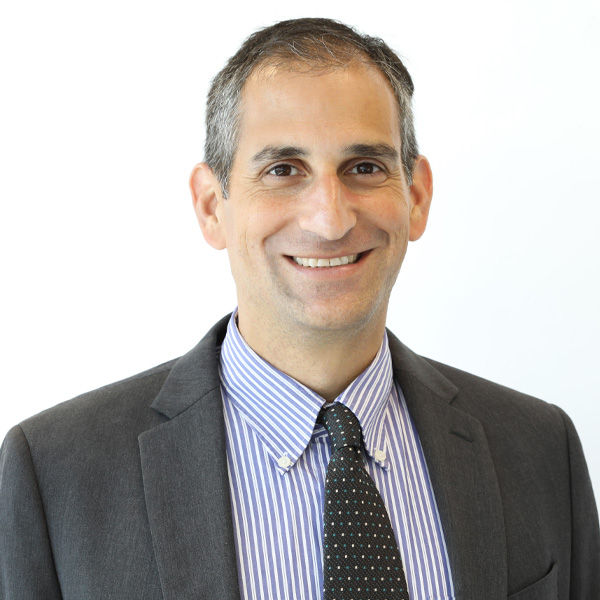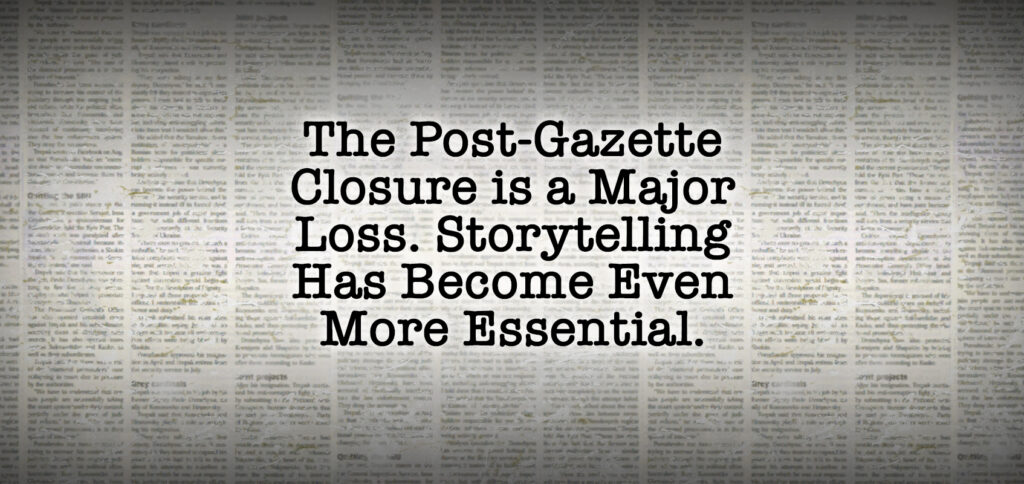Sylvester Mobley on Leadership and Supporting Underrepresented Philadelphians

For this year’s Veterans Day, the Coded by Kids founder and Plain Sight Capital co-founder talks with Ceisler Media’s Jeff Barg about his journey from the Marine Corps to a mission to improve equity in tech.
Philadelphia native Sylvester Mobley has no shortage of accolades in his hometown. Since launching Coded by Kids, an education nonprofit aiming to make Philly the capital of equitable tech and innovation, he’s been honored as a For(bes) the Culture 50 Champions honoree, with the 2018 Philadelphia Award, the University City Science Center Nucleus Cultivator Award, the Please Touch Museum Portia and Otto Sperr Legacy Award and the Philadelphia 76ers Game Changer Award. Each recognizes his game-changing goal of improving access and equity at every stage of innovation: from teaching kids tech to funding and founding venture-capital-backed startups.
On the occasion of this year’s Veterans Day, we talked with Mobley about his lessons from the military, how managers differ from leaders, and what it will take to transform the entire tech ecosystem.
Jeff Barg: What inspired you to start Coded by Kids?
Sylvester Mobley: After having negative experiences as a Black person in the startup space, I thought there had to be a better way of preparing underrepresented young people to go into the space without having the same poor experiences that I had.
JB: What kinds of poor experiences?
SM: I was technical. As a co-founder, I’ve been more of a developer than UX/UI or leading technical teams. But as I tried to raise capital and build a team by networking, people would tell me I needed to come back with my technical co-founder, because the assumption was that a Black guy couldn’t be the technical co-founder. Instead of networking at events, people quizzed me to see if I actually understood technology, because they didn’t believe I could understand the technology and the engineering because I was Black. These recurring experiences made me realize how challenging it is to operate under new circumstances and respond when people have already formed an idea of what you should or shouldn’t be doing because of the way that you look.
I also realized the tech space notoriously offers underrepresented people the low-hanging-fruit opportunities: certification-based jobs that have very little opportunity for growth, and tend to be the lowest paying jobs in tech. These jobs will never lead to them being a chief technology officer or founder of a venture-capital-backed startup. I wanted to intentionally focus on creating the opportunities that would empower underrepresented people to climb the ladder.
JB: Did you have a vision for transforming the whole ecosystem when you started? Or did you start with one piece, and then build out from there?
SM: I started by focusing on one piece, and then building as I realized the interconnected nature of all the different parts in the ecosystem. I noticed two things: First, I noticed a lot of organizations have tunnel vision and don’t think about the parts that have to work together. So organizationally, you have some minimal or moderate levels of success. And second, I learned the ultimate outcomes that you’re working towards aren’t always the needed outcomes, because you’re not paying attention to the larger ecosystem. The more I learned and understood how interconnected all of it was, the more I understood that I needed to not just think about our piece, but about the other things that would lead us where we need to go.
JB: What did that learning look like for you?
SM: It certainly wasn’t all at once. I learned gradually from working in education, workforce and economic development, and technology for the last nine years. The biggest lesson I’ve learned is to constantly ask why. If I see something that doesn’t make sense, my immediate reaction is to learn more about what drives it, what’s the cause of it, and what’s the result? For example, poverty is a symptom of more systemic problems. But everyone commits money and resources to poverty. So you’re basically treating the symptom without actually treating the cause. No one wants to do anything about the cause of poverty. But everyone wants to commit resources and money to poverty. But you can’t solve poverty if you don’t address the thing that’s creating the poverty. As I learned more things like that, it seemed crazy that we were taking some of the approaches we were taking.
JB: To be able to connect those dots and tackle those problems together, that takes leadership. Where did you learn about leadership?
SM: I learned about leadership in the Marine Corps and have carried these lessons with me throughout my life. There’s a conversation I have with new managers: There’s a difference between management and leadership. I’ve often seen in corporate environments how the two get conflated.
As a manager, you’re managing schedules, time, budgets, and production. But as a leader, you’re a coach, a mentor, an advisor, and a guide. A leader helps people improve and advance. A leader has to believe that things can move forward no matter how difficult it is. Understanding how to shift in and out of each role is a challenge, but is key to supporting your people.
JB: Do you think this message was unique to your military experience or a common message co-service-members share?
SM: I think it’s a common message. The military teaches you skills that aren’t necessarily hard or technical skills. I’m fortunate the military also taught me technology in addition to skills like leadership, perseverance, and resilience. The Marine Corps taught me that as long as I could make it to the next day, things would be okay. I applied this lesson when I started Coded by Kids. The problem I always see, though, is the military doesn’t do a good job of making the connection between what you’ve learned and how you can use that in a corporate or civilian application. It’s up to you to figure out how this fits into the larger context, and some people are able to do it, and some people aren’t. If there was more of an intentional or deliberate effort to teach people, “This is where this applies, and once you get out the military, this is how you can use this to your benefit,” people getting out of the military and veterans would have an easier time translating those things into what comes next.
JB: Are there specific tools that you think veterans should have to better support them as they transition out of the military to other careers?
SM: In the military, you are given responsibilities early on. People who have never been in the military tend to tie work to age, and say, “This person is super young.” If you’ve graduated from college and go into the military and become an officer, you’re 23, 24 years old, and you’re now responsible for lives of 30 people. I was 19 when I became a fireteam leader and was responsible for other people. So you go from being responsible for other people to starting over in a new career because you have no experience on paper. When you leave a career full of responsibilities in the military and join a non-military career with people who have just graduated from college, you can’t use Excel the way that a college graduate can or you can’t put together a presentation the way that they can. If the military did more to prepare people for the business world, it would help everyone. People who have hired veterans say they’re far more responsible—they understand how to get things done better coming in. But we tend to lose veterans in the workplace faster because they’re in the same cohort as people who are much younger and inexperienced. Recognizing and valuing military skills will help.
JB: What does service mean to you?
SM: I’ve been founder of a startup, a nonprofit, and now a for-profit venture capital fund. The common thread within all of these experiences is, regardless of where you are, we all have a responsibility. Far too many of us move through life focused on our own issues and problems. We often just complain about the things that we see. But if you really get into it, most people who complain and point out the problems are also the people willing to be a part of the solution, even if it makes them uncomfortable. We have a responsibility to become part of solutions to the problems we see. That’s a major piece of what service means to me.
JB: Does your notion of service tie to your time in the military?
SM: There was a point in our history where military service was something that many did that offered a sense of pride. Military service used to be a shared burden borne by people across socioeconomic classes, and this united different people. If you look at the demographics of people who serve in the military today, it has become a burden primarily borne by people who come from lower socioeconomic groups. The societal shift that military service now should only apply for those who are poor is a larger representation of our society being disconnected. An example is the war in Afghanistan: Many people were disconnected from what happened and felt they were not impacted. You see the same things happening today, where people are disconnected from what’s happening locally and are disconnected from service. We must approach societal issues as shared issues that we each must be responsible for. If more people become connected to what’s actually happening in our society, in our cities, in our neighborhoods, and in our school systems, we will be far more engaged in finding solutions together.

Sylvester Mobley is a Marine Corps veteran and founder of Coded by Kids, an education nonprofit aiming to make Philly the capital of equitable tech and innovation
Jeff Barg is a Director in CMIA’s Philadelphia office. Jeff is also the mind behind the Philadelphia Inquirer’s “The Grammarian” column.




